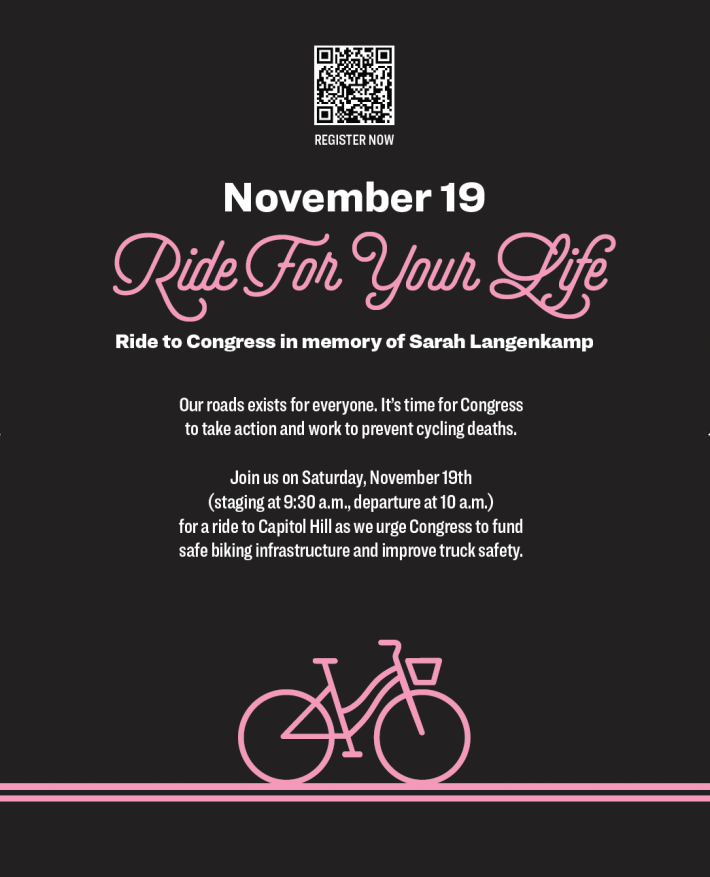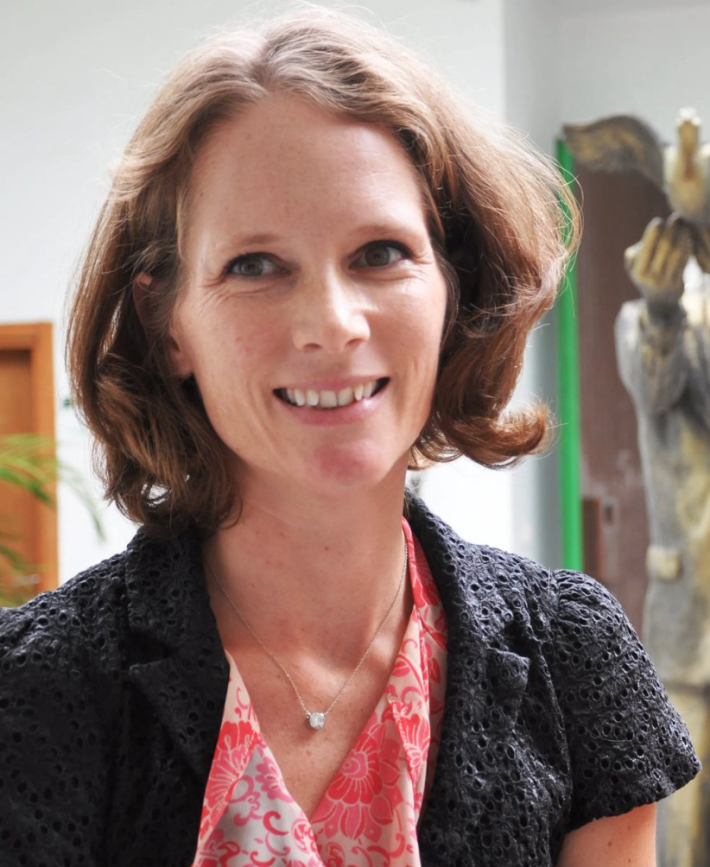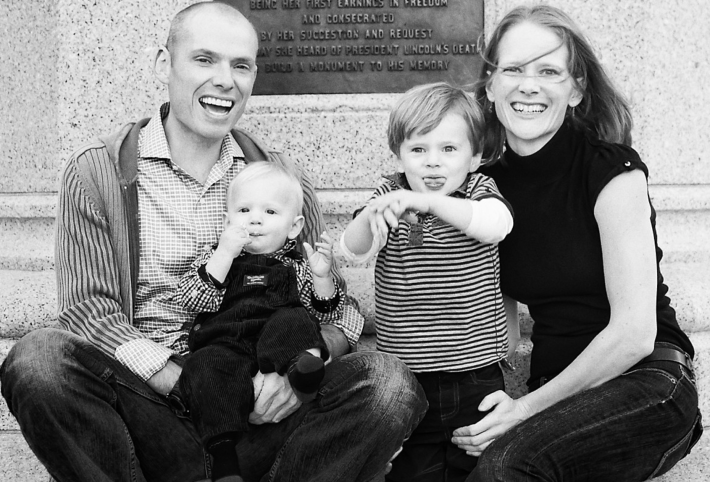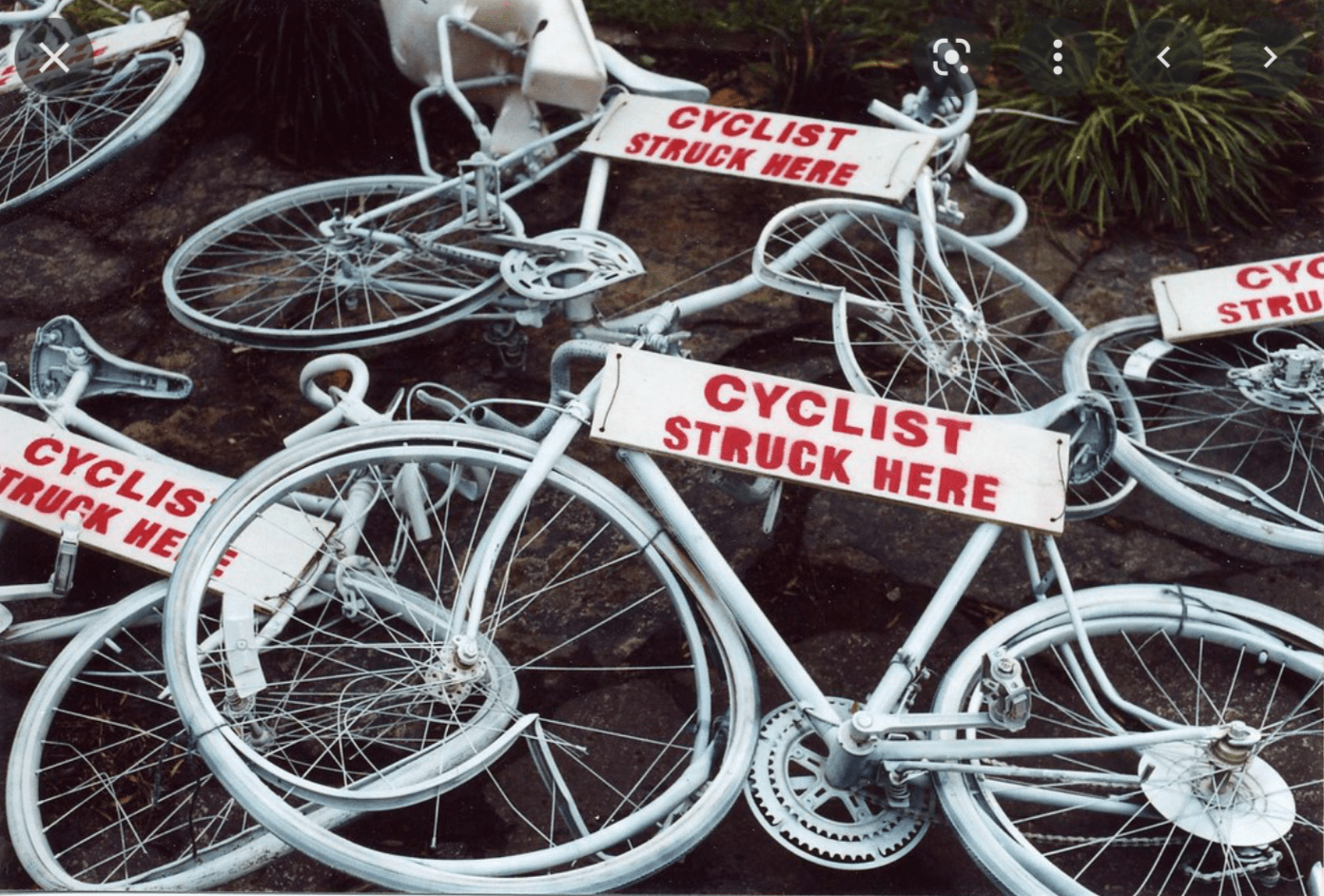More than 100,000 Americans lose a loved one in a car crash every single year. So why don't more of us talk about it — and why don't more of us take action to prevent other families from enduring those tragedies, too?

On this episode of The Brake, host Kea Wilson has an emotional conversation with advocate Dan Langenkamp about the people they've each recently lost to traffic violence, and what it means to mourn through advocacy.
Dan's wife, Sarah, was a diplomat to Ukraine and a mother of two young sons before she was killed by a right-turning truck driver as she biked home from her children's new elementary school on Aug. 25. Now, Dan is gathering cyclists from around the country to retrace Sarah's route and ride all the way to Congress to demand safer streets, vehicles, and systems — and he wants you to take part.
Register for the Ride for Your Life, support the Langenkamp family's ongoing fundraising efforts for bicycle safety organizations, and learn more the life and legacy of Sarah Langenkamp.
Tune in by clicking below, or download on Apple Podcasts, or anywhere else you listen (an excerpted version of the conversation, which has been edited for clarity and length, is below the audio player).
Kea Wilson: For listeners who might not know her name, tell me a little bit about who Sarah was.
Dan Langenkamp: It's hard for me to talk about Sarah directly without getting really emotional. She was really an incredible person.
We had just come from Ukraine where she was the head of our programs that fight corruption that hold Russia accountable for war crimes that are taking place around the world, and supplying the police and the National Guard and other non-military organizations with equipment and supplies to be able to fight Russia. Obviously, as we all know, fighting corruption and helping these institutions is a really critical national security position. And we were in the middle of all that [when] we had to return to Washington, D.C. for our safety.

Sarah was one of those amazing people that we all know — the kind of boss that you have that is empowering and kind and understanding, but also helps energize a team. Because when they do their work, it's not about them. It's not about their ego. It's about getting something done for the greater good.
So, you know, over the last eight weeks, it's just been incredible to me to see the kind of outpouring of support and affection for Sarah as a human being. Because she affected everybody — from the the lowest staffers at the embassy to the Secretary of State and the Attorney General Merrick Garland, who both wrote us personal letters. She touched everybody in an incredible way ... We have just lost this treasure, really. I mean, obviously, our family's lost a lot, but also, the whole country has lost somebody that had incredible potential.
I'm just livid about it. It's just so unfair to her and to everyone that by using a bike lane, she's been ripped from us in this way.
Wilson: One thing that really struck me about your story is that within really just days of your loss, you are on the news. You were talking about that anger you're talking about now, and about the structural reasons why your wife lost her life in a bike lane in the United States after surviving some really intense violence in other countries. ... Why did you turn to advocacy so soon after Sarah die — because not everybody does that?
Langenkamp: Well, I think part of it is because I'm a former journalist myself, to be honest, and I'm a press officer for the US government. So to me, part of when something important happens — you have to talk about it. It needs to be in the press. And when Sarah died, it was important and people needed to understand.
So I was super angry, you know? Obviously, it's super embarrassing for me to be getting so emotional with you. But I also just have to try to do right by her. She can't have died for for no reason. We have to get something out of this. I just can't let it go. I just cannot let it go.

And I also have to say: biking is a part of our family. We had a doormat that had a picture of a bike on it. We have pictures of bikes all over the house. We talked about biking all the time ,because it's how we got to work. For us, it's a beautiful symbol of a life well lived. You don't get there as fast as a car, but you get there humbly, and you get there in a way that's not destroying the planet. If the world had more people doing it, we would be a better world.
We were very happy that the Washington area had actually put in biking lanes all over the city, and that there's this [movement] for cities to become walkable and bikable. We were so happy and excited about using these lanes — until she got killed in one of them. It just instantly made me realize....if those lanes aren't safe, either because they're not protected, or because drivers aren't educated enough to respect them — all of those things made me realize that we have to do a lot more work to realize our dreams of bikable and walkable Washington, D.C., but also a bikable and walkable nation. I think a lot of cities have thrown down lanes that are not safe without the proper thinking about whether they give bikers the protection that they actually need.
So that's what I'm after. I think Sarah would support it.






